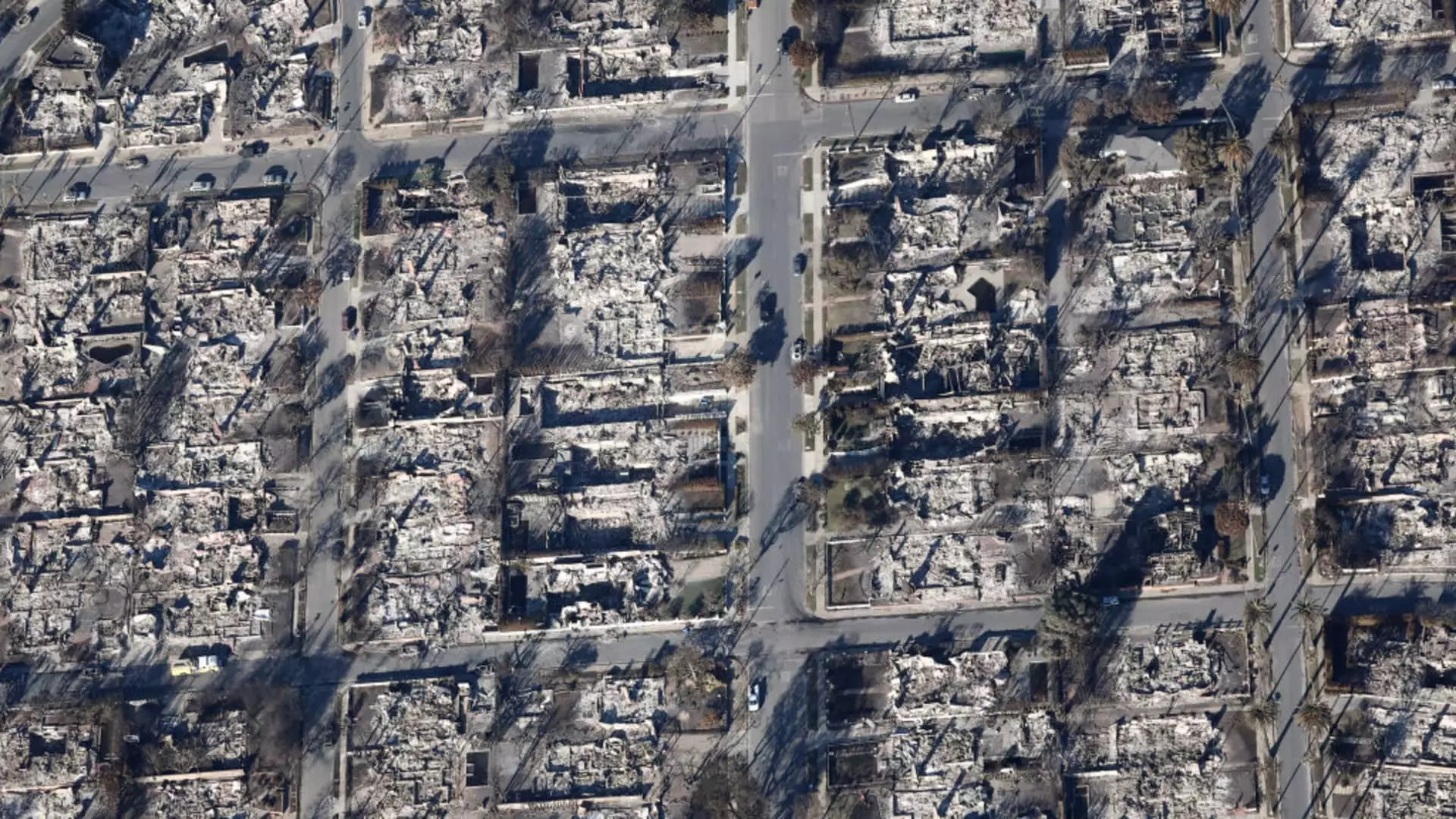The recent wildfires that swept across Los Angeles have left a significant mark on communities, particularly in Pacific Palisades, where families like Joe Thompson’s find themselves in a desperate search for housing. Displacement due to such natural disasters is not a new phenomenon in the United States; however, the interconnected issues of escalating rents and housing shortages present a dire scenario for those affected. The tragic aftermath illustrates a broader narrative of desperation, exploitation, and resilience amid calamity.
The Torn Fabric of Community Life
People like Joe and his family were struck hard by the unexpected devastation of the wildfires. Although their home remained intact, the emotional toll and uncertainty surrounding its condition forced them to vacate. The hunt for a new residence in an already strained housing market revealed shocking realities, including exorbitant rental prices. With escalating demand and dwindling supply, a stark pattern emerges—housing, a basic necessity, becomes an unattainable luxury when communities are plunged into crisis.
The Thompson family’s experience is compounded by the expectations of landlords, who increasingly demand substantial upfront payments amidst a perceived housing frenzy. What was once a market governed by supply and demand has morphed into a battle of bids amid a backdrop of loss and mourning.
As demand for housing soared, a troubling trend emerged: many landlords raised their prices significantly, some reportedly violating California laws that prohibit price gouging during emergencies. The behavior of these property owners is both alarming and disheartening. Assemblymember Jacqui Irwin aptly labeled such practices as “absolutely unacceptable and illegal,” a sentiment echoed by many advocates and researchers in the field.
Further complicating the situation is the reality that many families were already struggling to make ends meet before the fires. For renters whose financial stability is precarious, facing an inflated rental market can lead to devastating consequences. The notion of securing affordable housing amidst crisis becomes increasingly unattainable.
The Strain on Vulnerable Populations
The impact of the recent wildfires extends far beyond homes turned to ashes. Families across the social spectrum—working-class individuals, retirees, new homeowners, and affluent families with secondary residences—all find themselves fighting for the same scarce resources. Many have had to vacate their homes with little more than personal belongings, often relying on the kindness of friends and family or temporary shelters.
The overarching crisis is one of systemic inequities, where the most vulnerable populations face the harshest repercussions of natural disasters. Researchers note that the burden falls heavily on those who were already renting, exacerbating homelessness and financial instability in the aftermath of tragic events. The cycle of eviction and displacement is vicious and often insurmountable.
Despite the bleak picture painted by price hikes and scarcity, there are examples of community resilience and solidarity. Organizations, such as Airbnb.org, have stepped in to provide free temporary housing—a testament to the goodness that can emerge from adversity. Additionally, community groups are mobilizing to track rental increases and advocate for the rights of renters. Activists like Magdaleno Rosales echo the concerns of many, worrying that landlords may exploit vulnerable tenants desperate to find shelter.
Such grassroots efforts illustrate an essential truth: while authority figures may falter, communities often rise to the occasion, bolstering each other during tough times. The narrative of human compassion and collective action becomes a powerful counterforce against the distressing tide of greed and exploitation prevalent in the real estate market.
As families like the Thompsons continue to navigate the treacherous waters of post-wildfire housing, broader questions emerge concerning the future of the housing market in Los Angeles. What safeguards can be implemented to prevent price gouging, and how can the government ensure ample resources for displaced families? The current crisis emphasizes the importance of housing security in the face of natural disasters and challenges policymakers to rethink long-term solutions.
In the coming months, one must hope for a balance where displaced families can secure affordable, stable housing without being subjected to the whims of a predatory market. As Joe Thompson succinctly put it, families in California are enduring “a state of uncertainty” that should never be compounded by a lack of compassion and legality in the housing sector. Community strength, legal protections, and homeowner accountability will be critical components in overcoming this crisis and building a more resilient future.

